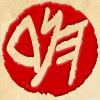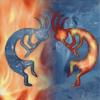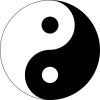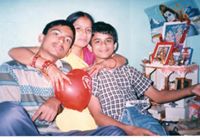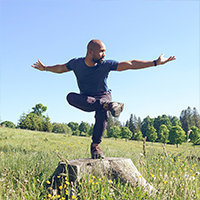Search the Community
Showing results for tags 'meditation'.
Found 261 results
-
Well, I have begun my meditation journey and I love the effects. I am registered for 10 day Vipassana in August (praying I get in) and they told me I have a good chance of getting in. However, Ill be going back to college after that so if I won't there will be some time before my next chance. I am realizing meditation is my path. I like how it feels and relaxes for my mind and body. I meditated in the sauna and got tk the point of barely breathing (didnt feel like I was breathing). I try to concentrate on my nose, but I was wondering: is that the best spot to focus on? I got back to the room and continued the meditation and I came across another question: is it okay for my breathing to be in sort of a 1,2 rhythm as opposed to say a 6,12 count rhythm? What does this mean? Should I nudge my breath toward being slower? I am buying "The Little Book of Meditation" tomarrow thanks to The Energy Cultivator's Handbook thread. One last question: I have a pinching pain inches under my right (and sometimes left) shoulder blade that wont seem to dissipate. Any advice or should I just continue meditating the way I have been?
- 5 replies
-
- Meditation
- Breath
-
(and 5 more)
Tagged with:
-
I just received this book as a gift. I've read the intro and just one page (I would like to read a page/meditation once a day) I just wondered if anybody else has this book and what they think!
- 15 replies
-
- 1
-

-
- 365 Tao
- Deng Ming-Dao
-
(and 1 more)
Tagged with:
-
I was wondering lately about when to use healing through energy and when to go and take meds and such. Many views on healing claiming that everything from sickness and different kind of symptoms is related to energy stagnation happening due to a karmic or psychological/past issue. and that can be healed through working with energy and healing those stagnations and such. and not healing the wounds on energetic levels means that they will appear in another way in form of sickness or other materialization in the physical reality. Other views sees limitations to the healings in terms that stuff can be healed and other can't, and it is left to the medicine. Also, i m asking this question because lately i was having this throat/adam's apple uncomfortable sensation of like there is a stagnation with a little pain sometimes and some hardness in swallowing in my throat/adam's apple. and these sensation increase if i focus (during meditation/vipassana) and when an emotional / drama scene appear on tv or in real life. sometimes when i scan the body and find a pain or an energy sensation on a body part, with a lot of focus of allowing, letting go, accepting it as it is, the pain disappears... but this one is growing and links up sometimes to ear and eyes. So currently not sure if it is root is malfunctioning of an organ maybe the thyroid or other physical thing, or an energetical problem, or an energy issue (related to something of past/psycho) causing the malfunctioning of an organ or something ? and i don't want to treat it through med without solving the actual issue if accepting the view that all is energy related. So how to know whether it can be solved through energy or medicine (taking meds)? Thanks.
- 2 replies
-
- 1
-

-
- healing
- meditation
-
(and 1 more)
Tagged with:
-
new Burgs blog on concentration, thought some meditation bums might find this insightful http://theartofmeditation.org/learning-to-play-the-instrument-of-the-mind/ goes along with what i've been saying about having a practice that restrains the mind vs letting it do its own thing as crucial. concentration seems to be the faculty people are lacking nowadays, with all the stimulation and gratification of technology etc. and also learning in a live environment for the best chance of making smooth progress.
-
Recently, i have noticed the importance of the last Thought (activities, mind state) that a person has before sleeping, in affecting the next day in terms of the energy and mind state the person wakes up with and the quality of the whole new day. For example: watching Tv, drama series or something violent before sleeping, will make the person wakes up in a bad mood or feeling tired, Also this is similar to masturbation, thinking of negative thoughts or eating unhealthy food before sleeping. A lot of teachers recommend doing meditation at night before sleeping and ending it with metta of love and compassion allowing the mind to become calm and have positive thoughts. also it is recommend to meditate in the morning to empower your day. (usually if you meditate at night you are more likely to meditate in the morning and be holding that energy during the day) Also meditating at night allow to improve lucidity in the dream, which can be used in solving life problems that arises in the dream state or realize fantaisies. also, if someone try to solve homework or maybe do their work at night before sleeping.. you are more likely to find yourself more motivated to work on them the next day. So, What do you think?
- 3 replies
-
- 2
-

-
- thoughts
- meditation
-
(and 1 more)
Tagged with:
-

Guidance on how to choose meditations and cultivation techniques
Eques Peregrinus posted a topic in Newcomer Corner
I would like to know which considerations should be taken to choose a meditation technique or a cultivation practice among the various ones that exists. Things like their requirements or in what they consists in very general terms. Or if they would require the presence of a teacher, or, at least, his/her/its instructions. Or if they can likely cause problem to the health, physically or psychically, even if they are not too badly practiced. Or if they are in part oath-bound. Etc... Also, Daoism is not an unified movement (neither is Buddhism, neither is Hinduism, neither is Christianity, etc... for what is matters), but are there some practices or rituals which are more prevalent among schools? -
Do you believe that parallel universes or alternate realities exist? what i m saying that, some spiritual people say that all the possible action that could have happened are happening at the same time, but based on our energy/vibration/frequency we move among these realities. for example: someone who is poor in a reality, maybe rich in another one and all of these reality exist but we are moving among them. Maybe it is similar to those who can know their past lives, can see and maybe relive a past life? it is like moving the consciousness into another stream of reality and living it and going out of this reality that the consciousness is experiencing. What do you think?
-
Hi Everyone It has been some time since I was here last. It was Tao Bums when last here. I am based in SE Asia and follow a daily practice of Hermetics and Yoga. I am here to share and learn as have been a bit of a hermit for last few years. Thanks Simon = Dawn Of Truth
- 2 replies
-
- 3
-

-
- Meditation
- Hermetics
-
(and 1 more)
Tagged with:
-
Gui Zhen Society in Staten Island NY. Hi Every One! I'm Lin, been on the Dao Bums for ages now, and recently moved back to the U.S. from China. I re-established my cultivation school in Staten Island and am offering a number of cultivation methods I have been putting together over the last several years. One of them is called White Canopy Meditation, a.k.a. Jiu Wu Tan Gong (Nine Five Platform Cultivation). Its quite a lengthy description, so I wil leave a short one here and link you to my personal practice page for the full idea: White Canopy Description Also new to the martial arts world, as well as to the Qigong, meditation, etc world, my own expression of both spiritual cultivaton and martial art , Origin and Illusion (Zong Huan). Origin and Illusion: Zong Huan Peace and Blessings, Lin Ai Wei Gui Zhen Society, Pure Mind Center Pure Mind Center Blog
-

Da Cheng Jie Yao partial translation
phoenix_darshan posted a topic in Miscellaneous Daoist Texts & Daoist Biographies
here you can find a partial translation of a previously untranslated text called da cheng jie yao (essentials of the shortcut to the great achievement), the ite features more information about wudang and daoism, as well as offering a schoalrship for people who are less well-off. http://fiveimmortals.com/the-essentials-of-the-shortcut-to-the-great-achievement/-
- 1
-

-
- internal alchemy
- wudang
- (and 6 more)
-
What does it mean to be in a land that never ends? This question seeped into my thoughts when I was writing an anthology of poetry, Evolutionary Nothingness Vol.1. I tried to understand the nothingness as something that does not exist, or a place in the mind that never ends. An extension of thoughts that are so strong, they become pieces of you, resembling vivid emotions. Read more here: https://medium.com/@leonbasin/the-neverland-9fd31a6e4921#.ijo804lzy
- 7 replies
-
- meditation
- life
-
(and 2 more)
Tagged with:
-
Floating through meditation is something you hear about in India, but I feel like you don't hear about it much in China. Does anyone know of any references to floating in Daoist mythology or folklore? If not, I am curious about what "outward" effects are referenced in regards to high levels of meditation refinement (I'm NOT so curious about what modern science can prove, but more of what exists in the mythology and folklore of Daoism). For this sort of stuff I usually reference all the Eva Wong books with folklore stories, but I'm not finding much in there about floating. And before anyone asks, I am in no way claiming I floated. I am just curious about filling the holes in my knowledge of Daoist mythology.
- 4 replies
-
- microcosmic orbit
- meditation
-
(and 1 more)
Tagged with:
-
Greetings Every One! I have been off the forum for quite a while now. Lecturing in China for a few years has come to an end, and now I am back in the states. Starting over in Pennsylvania, Milford. This January I have re-opened my cultivation school, and have classes in full force. Last year I have placed all my practices into two systems White Canopy Platform Cultivation, and Imperial Zong Huan. For a description of both, please visit Gui Zhen Society I hope every one is doing well. Peace and Blessings, Lin
- 4 replies
-
- 2
-

-
- Daois
- Confucianism
-
(and 5 more)
Tagged with:
-
I am going on a meditation retreat with Wang Li Ping on April 8 through April 18, 2016. http://longmen.eu/registration-longmen-2016/ Here is a Wikipedia article about him: https://en.wikipedia.org/wiki/Wang_Liping_(Taoist) What questions would you ask a skilled meditater? What questions do you have for Wang Li Ping?
- 18 replies
-
- 4
-

-
- Wang Li Ping
- Longmen
-
(and 4 more)
Tagged with:
-
I'm curious to hear about some people's understanding of progression in meditation. As an analogy, I'm an amateur computer programmer. I have spent a lot of time teaching myself from various sources. I also recently took a MOOC (massive open online course) in programming. The course was very well designed with a clear structure and progression from complete basics to more complex material. This was very useful for a couple of reasons. One is that in “submitting” to an externally imposed structure, I was encouraged to look at material that might either not have occurred to me to look at, or been too difficult or to easy. So an external structure can help to reduce the “Swiss cheese” phenomenon, which is a major pitfall in self-education. It also builds on basic skills with clear sense of direction and development. I have not come across many meditation teachers or traditions where this kind of clear progression is used or emphasised. It’s often been something of a “buffet” of various techniques which I can try and use as I see fit, with no clear signposts as to when and how to develop my practice. While I really value this kind of experimentation and empirical research, and believe that it is actually indispensable for empowerment and maturity as a practitioner, nonetheless I also believe that external structures for progression are extremely important. It would perhaps be foolish and conceited of me to imagine that I can educate myself in any subject better than teachers who have learned it thoroughly with the support of a tradition, and who have designed a curriculum based on years of experience of teaching and practicing. I’m also aware that practice often is circular, and so called “beginner’s” practices can also be used further down the road as “advanced” practices. I’ve been told d that a certain very simple Dzogchen practice is all that is needed for complete enlightenment, but that many people aren’t happy with simplicity, and so there are more complex practices to satisfy them. I feel that at my particular stage of my meditation journey, it would be good to undertake some kind of meditation equivalent of a MOOC with a really good “spiritual university,” to make sure my foundation is solid and help me on my way. I’d particularly like to hear any thoughts on this from a Theravada, Mahayana, Bon, Hindu or Taoist perspective.
- 8 replies
-
- 3
-

-
- Meditation
- Practice
-
(and 3 more)
Tagged with:
-
As I've mentioned in another post, I've been meditating for a long time in a particular tradition and am now exploring other paths. It's a bit overwhelming to see just how many teachers and traditions there are out there, each with it's own take on spiritual development. One big distinction seems to be the (apparent?) Theravada/Mahayana divide, which I think represents a much more general categorization than is found just within Buddhism: On the one hand there is self-reliance and seemingly "down-to-Earth" practices which don't involve much cognitive dissonance for the average western-atheistic-mainstream-scientific worldview. On the other, there is reliance on blessings, transmission and lineage, and all manner of phenomena that are generally beyond the pale of the mainstream western mentality, such as psychic events and suspension of the usual behavior of the "laws" of physics. I’m curious to hear which path some of you have chosen, and why. Or perhaps some of you make use of elements from both approaches, and this works for you too? I ask to help meet my needs for learning, exploration and sharing.
-
Some concerns and unanswered questions regarding learning Taoist Meditation with BK Frantzis The context of the following points is of my having practiced Taoist Meditation as taught by Bruce Frantzis for about fifteen years, with annual attendance at his meditation-related teachings and a practice schedule of one to two hours a day. Prior to that I had studied with senior EA instructors for nearly a decade, so I’m talking from a position of some experience, rather than hearsay or just having read some books. I have recently decided to take a break from the practices Bruce has taught me, and am re-evaluating my relationship to him as a teacher. Obviously I have got a lot from the practice of Taoist meditation or I wouldn’t have stuck with it for so long. However, the focus of this post is on the less positive aspects of my experience. · Bruce learned much of what he teaches studying one-on-one with his main Teacher Liu Hung Chieh for several hours a day over several years. He says in his books that personal feedback from a genuine master is essential for making progress and avoiding delusion. However, he doesn’t offer this kind of personal feedback. Instead, in my experience, he is not very approachable - in fact he can come across as very unfriendly. He will answer questions (in a manner that often comes across as reluctant and condescending), but in my experience he doesn’t always listen carefully or understand exactly what is being asked. The idea of having a relaxed, nuanced conversation with him about my practice seems impossible. This is in spite of the fact that in order to have the opportunity to talk to him I might have spent a lot of money and travelled a long way. · For some reason, there appears to be NO ONE else outside of China (excepting a few of his senior instructors) who teaches the method of Inner Dissolving from the tradition he claims to be part of. Perhaps when he started teaching, this was understandable what with the language barrier and general level of cultural exchange, but now, decades later, why are there no other representatives of the “Water Tradition” offering their teaching to westerners? · Whatever the reason for the last point, the situation is very unusual and prone to difficulties. After all, there is no realistic source of verification or alternative perspective or simply the opportunity to learn the same method from a teacher with a different personality. · Bruce is a student of Dzogchen master Wangdor Rimpoche, who has another student, Lama Lena, who offers much more support than Bruce. She told me that she only takes on as many students as she can maintain a personal connection with, and makes a point of always replying to emails written by students since she recognises how much effort and care has been put into writing them. Bruce has on a couple of occasions replied to messages from me on Facebook, for which I am grateful. However, one of these replies took over a year, and one message had no reply. · I understand that Bruce has many students and cannot be available to everyone. This seems fine for health practices, but when it comes to meditation, I find myself wondering if he is spreading himself too thin to make the path he teaches genuinely viable, in the absence of anyone else from his lineage available to offer guidance, feedback and support. · There sometimes seems to be a lack continuity or follow-up between mediation teachings. For example, one year in Oxford Bruce taught about how to dissolve the mind directly without going via the body, and another year he taught the use of sound to work with the first three energy bodies. Neither of these teaching had any follow-up as far as I know. There are also lots of audio and video resources available, which is great. However, without some guidance, it’s hard to know which of the many aspects and practices to work on at any given point. Bruce’s quote from Liu of “So, you’re a baby then, who needs to be told what to practice?” doesn’t quite sit right with me given the difference in learning contexts - ie intensive daily observation and input vs. annual workshops with many other students. · Maybe it’s a small deal, but why does Bruce feel the need to spend so much time talking about his achievements and just how amazing he is? For me it goes beyond instilling confidence in his credentials or the power of the practices and becomes somewhat grating. · The sense of always more - there is something about the way Bruce presents his teaching that I hear as implying that we as students are really complete beginners however long we might have been learning. Years ago a student of his who had left him said that it took meditation away from being a basic human activity everyone can do to something very elitist that you need special transmission in order to do properly. This a perspective shared by some Buddhist schools as well. It might well be the case, but there might also be an element of “the Emperor’s New Clothes” going on. It’s hard to say, and is a point of discernment. · Finally, in my recent research into alternative spiritual paths and teachers, I came across an article about Zen meditation in which the author wrote that to consider that someone is your teacher, you must see them in person a least once a year and they must KNOW YOUR NAME! Perhaps the crux of my whole experience here is that I predict a low probability that Bruce could remember my name unprompted, in spite of the time, effort and money I have put into learning from him. Of course one could argue that he has given me a great gift by sharing the teachings, and is in no way beholden to me, but regardless, there’s something about the totality as my experience which “doesn’t feel quite right.” The reason I’m going into so much detail and thinking and writing about all this is that it is actually a very big deal to move on from a mediation teacher and practice that has been a huge part of my life over such a long time. I think ideally I would not make this change, but with things as they are and not knowing how to address them, it feels more true to myself to cut myself adrift and see what else comes my way re spiritual guidance. It’s hard to measure the benefits I’ve received through my loyalty to this path, although I expect they are immense. I’d like to feel more at peace and have some resolution with Bruce around my experience, but maybe for now I need to allow myself to feel a bit angry and disillusioned in order to help me make the transition to the next stage of my journey. ***** I'm curious to read any constructive comments and/or feedback from what I've written. Has anyone here had similar experiences either with Bruce or any other teacher? I'm off to a weekend retreat on Mindfulness today. Should be interesting....
- 16 replies
-
- 8
-

-
- BK Frantzis
- Taoism
-
(and 2 more)
Tagged with:
-
In many different qigong meditations and sitting practice meditations, there are visualizations/movements to gather norht star or big dipper energy. What exactly is the energetic or psychic significance of polaris or big dipper? Does it give some unique chi that is better than the solar chi? Why not other stars or planets?
-
What's are some of the most interesting experiences you've had during meditation, OBE, etc.? I'm very interested to hear some of the them!
- 47 replies
-
- meditation
- trance
-
(and 8 more)
Tagged with:
-
Hello, everybody!!! I am an 30 yrs old Engineer, practicing meditation for last few years. But right now, I am going through, what appears to be healing crisis. I learnt meditation on my own and I do not have any masters. So, through this forum, which I am a member through facebook, I would like to come in contact with like minded people and learn new things. My problem right now is blockage at sacral chakra which seems to be too hard for me to crack. So, if anybody could suggest me techniques to open the blockage would be very helpful. Thanks and regards, Sunshine
-
For some reason I can't just relax enough to meditate, it feels more like a stamina challenge, also get some strange back pain. Have tried from sitting in a chair to cross legged on the floor. Feel more irrated during the process. any tips on how to get relaxed enough? Tried taking supplements, like magnesium, l-theanine, drinking relaxing tea. But nothing. I have had one or two instances where I managed to get relaxed enough where I could meditate and feel the benefits. But just can't get past the first 10 minutes. The feeling I would describe is as I if I am stuck in the awake beta frequency,can't move down the scale to alpha/theta.
-
Q: Thank you so much, how can I connect to space, I mean how can I imagine the space and connect to it. A: Hello. The first thing you must do, is understand that the process of imagination is a function of the mind and the thoughts it produces. The space between the thoughts, is the still point in the midst of the movement of the mind. It is like the subtle pause after the inbreath and the outbreath of air from our lungs. It is the point of no-thing, whence wu wei is birthed. If you can remain at rest within this sea of relative emptiness and empty your heart of desires; the body of the Tao will embrace you in it's transformative energy and you will begin to awaken to your original essence and see your true face, as it is before you are born into the physical dimension of duality: Taiji. The second thing to understand is that the thoughts on their own cannot be rid off. They are evidence of a live and conscious being, and you should be happy you have them. When your body dies, the thoughts will die with the brain. I will give you an easy method that you can practice at your leisure. 1. Sit comfortably on a chair or on the floor, and make sure your back is naturally erect. 2. Take a few minutes to relax your body completely. Relaxation is one of the most important things, not just during meditation, but during every activity we perform in life. When the mind and the body are relaxed, the spirit is still. When the spirit is still, it can manifest the Tao perfectly. 3. Place your attention on a single point. This is your anchor. You can pick your Xia Dantien or the tip of your nose. 4. Maintain your attention on the anchor point, but do not apply any intention. There is a difference between the two. Although both intention and attention can lead the mind. The former is pregnant with desire, while the latter is empty of it. We want to disengage the heart, because when the heart stirs it produces thoughts and emotions. So, to be effective we apply an open attention instead of a closed intention. 5. Keep your attention on the anchor point. Nothing should sway you from it. Not even the breath. If you notice you are voluntarily adjusting your breathing; remove the attention even from this activity and replace it back on the anchor point. The breath will regulate itself. When at rest, it is an involuntary mechanism and it does not need conscious direction from the mind. The thoughts need Qi to function, so the breath is connected to the thoughts, and our awareness provides the fuel. Because of this, the breath can be used as a yardstick in measuring the efficacy of producing tranquillity. If the breath is slow, the thoughts are weak and the awareness is disengaged from their activity. If the breath is fast and laboured, the thoughts will be heavy and over-active and our awareness will be dedicated to supporting their proliferation. If the breath becomes so slow, and for long periods of time seems to stop completely. Then you are beginning to touch upon the state required to support spiritual transformation in deep mediation. Your awareness will be completely disengaged from the Taiji dimension and it's full potential will be redirected towards the transportation of consciousness into the absolute emptiness of Wuji. 6. If you notice that your awareness has been hijacked by a torrent of thoughts or one idea that has spiralled into a full blown Hollywood blockbuster. Do not get aggravated or irritated. Just gently redirect your attention to your anchor point. 7. Repeat steps 4 to 6. At first you will notice that you're only able to maintain focus for short spans of time, maybe even seconds at the beginning. With daily practice, this will grow into minutes and hours, until eventually your awareness will condition itself to continuously stay in this relative emptiness within your mind, whether you're working or talking or lying down. This relative emptiness is a pathway to the absolute emptiness of the Wuji. It is like a thread which will lead you into the ultimate fire of spiritual transformation. In time, you will find that rather than needing to engage the "thinking" mind to express yourself in the world; your expression will come from a higher faculty; a source beyond the impermanence of the physical mind, and you will finally begin to express your soul directly. Action, thought, mind, emotion, awareness, everything will blend into one, and you will move as a whole being in every facet of your life. One divine entity, expressing itself directly as a manifestation of the perfected nature of the Tao. Best wishes. Xuan Daoji
-
- 8
-

-
- taoism
- meditation
-
(and 1 more)
Tagged with:
-
Hi, firstly I'd like to say that I'm glad that I've found this place, it's filled with lots of information and good (and not so good) people Before I go into telling the story I'd like to state my goal first, which is finding evidence that this force within really exists (chi, qi, life force) whichever term works for you, but I have no idea what I'm doing so any input is highly appreciated. 1. journeys out of the body robert monroe http://www.amazon.com/Journeys-Out-Body-Robert-Monroe/dp/0385008619 I started out with this book, the author seemed like a pragmatic man (not too crazy) so I said, why not give it a try. The method he describes there is pretty simple, you relax, close your eyes, stay on your back with your head direction north (would be nice to find out why exactly north but..), then you focus your attention above your eyes, about where your hands would be if you'd stretch them out, and after a while you move your attention somewhere above your head (I'd say where you crown chakra is but I'm not sure) and wait for a miracle to happen. didn't have any success with this, but I'm still trying from time to time I'm also playing with this 2. John Chang (Mo Pai) http://spiritualteachers.proboards.com/thread/1320 I tried to do what that guy said there for the first level for about a month, and realized that there's no way that I can empty my mind just like that, so I'm doing something different right now. I'm sitting in half lotus, breathing in through the nose, "forcing" in as much air as I can, until I reach a point that I feel some kind of pressure around that point where the lower dantien (I meant to say solar plexus) is supposed to be, and when breathing out I'm pulling in my stomach and huiyin (perineum) until I fell the pressure in the same place. I like this more then just trying to empty your mind because, I have a point at which to focus and the second one is after a while of doing this kind of breathing I transpire a lot but only in that region (around the abdomen and lower back) which is a good sign, right ? 3. Opening the Dragon Gate: The Making of a modern Taoist Wizard I stopped reading this one after I saw that you have to be able to sit in full lotus for at least 4 hours (which took that guy around half a year to achieve), and I'm only able to do half lotus for ~2 hours max, and even that feels like torture What do you guys think ? (I'm sorry that I've made you read all that)
- 6 replies
-
- newbie talk
- help
-
(and 3 more)
Tagged with:
-
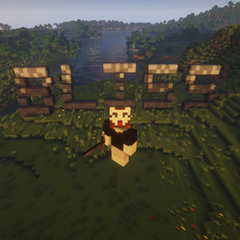
A Question About the ZaZan Buddha Hand Position Mudra for Meditation
DreamBliss posted a topic in General Discussion
Just watched Larry Terkel's video on Mudras for meditation. He says that for males, right hand over left, and for females, left hand over right. I am certain I read in one of John Daido Loori's books (I think that is where I learned it) that it is non-dominant hand over dominant. If that is the case, then it would be left over right for me. What is the correct, official, as-Buddha did it position of the hands here? Are you tapping into your feminine side as a male if you place your left hand over your right? Or masculine side as a female if you are placing your right hand over left? Just want to get this right. I trust John Daido Loori, but Larry Terkel guy seems to know what he is talking about too, so I am confused. Thanks for helping me clear this up! -
Yo! So I fancied experimenting. I usually meditate in full lotus these days with my eyes shut in addition to my regular kung fu practice. However, after learning the techniques of Zazen, I couldn't help but resist trying out this new form. The practice is fairly similar to what I usually do...counting breaths to calm the mind but I usually then trail off onto what i need to focus on for that particular session. In Zazen, the counting is the sole focus and there is one major difference - the eyes are half open (as advised by many practitioners/teachers) and focussed at the floor roughly three feet in front. I found this extremely hard! All of a sudden, there are so many more distractions present that I am needing to avoid such as my eyelids flickering and going cross eyed. I guess this is the same as my kung fu forms, but at least in martial arts I'm moving so the temptation for the mind to wander is less. What are your experiences with half-open eyes? What are your opinions on Zazen? I would like to know more, and if you recommend half-open eyes as a good form of training concentration, mindfulness, and all round meditation
- 35 replies
-
- meditation
- technique
-
(and 5 more)
Tagged with:







